 Weird Stuff
Weird Stuff  Weird Stuff
Weird Stuff  Movies and TV
Movies and TV 10 Weird Ways That TV Shows Were Censored
 Our World
Our World 10 Places with Geological Features That Shouldn’t Exist
 Crime
Crime 10 Dark Details of the “Bodies in the Barrels” Murders
 Animals
Animals The Animal Kingdom’s 10 Greatest Dance Moves
 Movies and TV
Movies and TV 10 Box Office Bombs That We Should Have Predicted in 2025
 History
History 10 Extreme Laws That Tried to Engineer Society
 History
History 10 “Modern” Problems with Surprising Historical Analogs
 Health
Health 10 Everyday Activities That Secretly Alter Consciousness
 History
History Top 10 Historical Disasters Caused by Someone Calling in Sick
 Weird Stuff
Weird Stuff 10 Wacky Conspiracy Theories You Will Need to Sit Down For
 Movies and TV
Movies and TV 10 Weird Ways That TV Shows Were Censored
 Our World
Our World 10 Places with Geological Features That Shouldn’t Exist
Who's Behind Listverse?

Jamie Frater
Head Editor
Jamie founded Listverse due to an insatiable desire to share fascinating, obscure, and bizarre facts. He has been a guest speaker on numerous national radio and television stations and is a five time published author.
More About Us Crime
Crime 10 Dark Details of the “Bodies in the Barrels” Murders
 Animals
Animals The Animal Kingdom’s 10 Greatest Dance Moves
 Movies and TV
Movies and TV 10 Box Office Bombs That We Should Have Predicted in 2025
 History
History 10 Extreme Laws That Tried to Engineer Society
 History
History 10 “Modern” Problems with Surprising Historical Analogs
 Health
Health 10 Everyday Activities That Secretly Alter Consciousness
 History
History Top 10 Historical Disasters Caused by Someone Calling in Sick
10 Books That Got The Story Wrong (According To The Author)
You just finished a brilliant book, and you want to discuss it with the world. Of course, since you read books, you don’t have any real friends, so the Internet will have to do. Your jolly-eyed hope for fruitful discussion is quickly dashed as most Internet comments talk about how awful the book was and everything that it got wrong. Little do you know, those comments may have come from the authors themselves . . .
10 Tolkien And The Elves
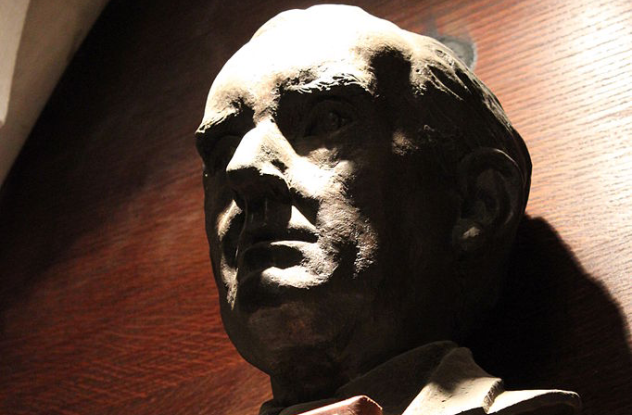
J.R.R. Tolkien was a master of language. On top of being one of the great writers of the English language, he was also an academic who spoke and translated Anglo-Saxon. Of course, we cannot forget all the languages that he invented for his mythical world of Middle-earth. One of his great regrets in The Lord of the Rings was the use of elves. It’s not exactly the elves as characters that Tolkien bemoaned but rather the audience’s ignorant perception of them.
He stated in a letter that calling his characters “elves” was a mistake because people erroneously thought of them as delicate, pointy-eared fairies. The elves were supposed to be giant and imposing beings of stature. Tolkien’s elves were supposed to be depicted as they had been in Celtic mythology down through Edmund Spenser. Amusingly, he blames Shakespeare for this semantic crime. Shakespeare changed elves into the creatures that we think of today, but Tolkien nevertheless had the greatest respect for the Bard.
9 Agatha Christie Wanted To Murder Her Cash Cow
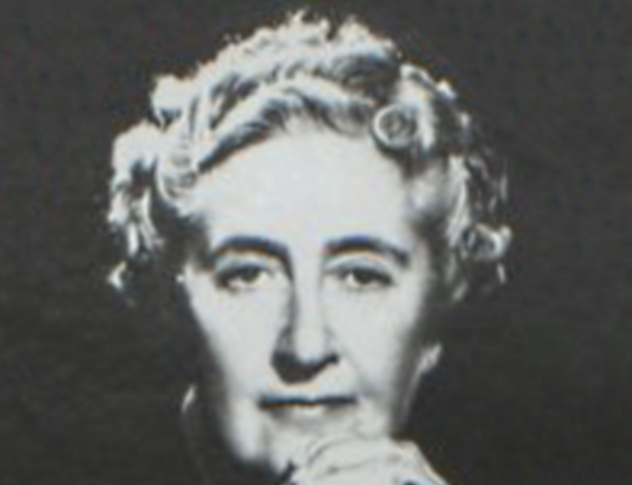
Agatha Christie created the beloved Hercule Poirot, the eccentric Belgian detective with a sharp eye for solving crime. He was by far her most popular character, but after a few appearances, she realized that she hated him and had done him all wrong.
When Poirot first became popular, and before Christie desired his death, she realized that she should not have given him a limp, made him so old, or, for that matter, Belgian. Then, when the character became a “detestable, bombastic, tiresome, ego-centric little creep,” she decided to kill him. She wrote his death novel in 1945 but locked it in a safe when she realized how much money there was for her to make from Poirot. It was too hard to turn down the cash, so she continued to create stories centered on a character that she loathed. Poirot’s Curtain was eventually published, while Christie was on her deathbed.
8 Dickens And Fagin In Oliver Twist
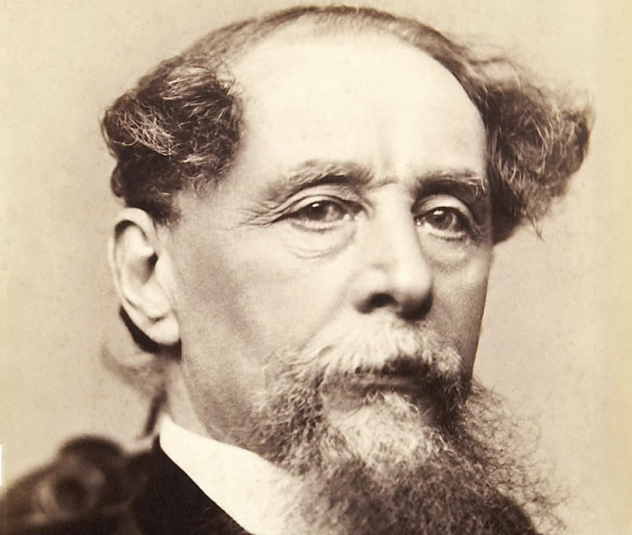
Charles Dickens’s character of Fagin in Oliver Twist is an awful Jewish caricature meant to represent an evil foil to the good represented by Oliver. Fagin is a twisted, evil man that embodies the worst stereotypes of Jews, and the fact that he is Jewish is central to the character being evil.
Dickens was a product of his time, however, and he created the character according to the societal attitudes toward Jews during Victorian Britain. Anti-Semitism was common, and Dickens reflected that unfortunate truth.
Jews, as one can imagine, were not happy at being represented as intrinsically evil, and they launched a campaign to get Dickens to admit that he made a mistake. Dickens initially responded by saying that he wasn’t personally anti-Semitic but that “it unfortunately was true of the time to which the story refers, that that class of criminal almost invariably was a Jew.”
In 1869, however, after befriending a Jewish couple, Dickens rewrote Oliver Twist. He commented on the “great wrong” that he had committed against the Jewish people. To make amends, he removed all mention of “the Jew” from the last 15 chapters and purged Fagin of classic Jewish stereotypes.
7 Stephen King Goes To The Movies
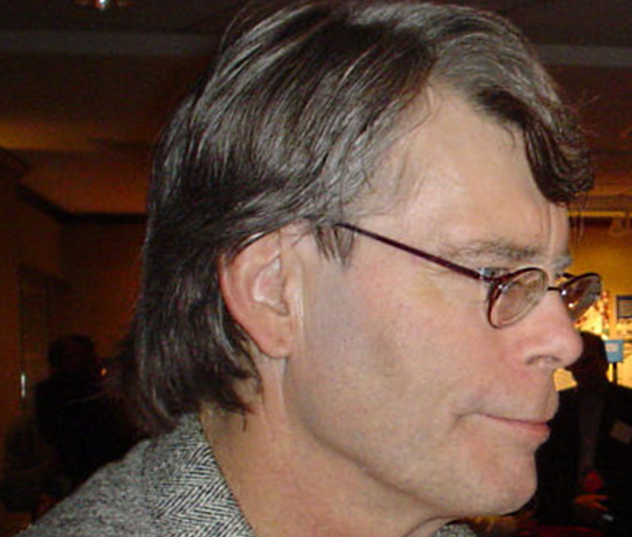
Stephen King’s stories are frequently adapted for the screen, and the writer often gives his thoughts on how the film adaption weighs against his original story. Sometimes, King’s thoughts can be quite harsh and at odds with critical consensus. This was most evident with Stanley Kubrick’s version of The Shining, which King hated. Most of the time, though, King is more generous, pointing out positive aspects of an adaption of his work. However, one time, he went a bit further than that.
Frank Darabont, director of The Shawshank Redemption, adapted King’s short story The Mist for the screen in 2007. The story centers on a mysterious mist that encloses a group of people in a store, and the mist is hiding something. The movie is fairly faithful to the source material . . . until the end. In the film, the main character kills everyone else in his group to save them from a horrible fate. Mere seconds later, the military shows up to rescue the now mostly dead group. This radically diverges from the short story’s ending.
King did not leave the change without comment. He loved it. He loved it so much that he stated, “I wish I had thought of it . . . If I had, that’s the ending I would’ve used in my story.” That’s high praise indeed. It is a rare thing for an author to say that someone else’s version of his story got it right over the original.
6 Sci-Fi Author Dismisses Book That Made Him Famous As Propaganda
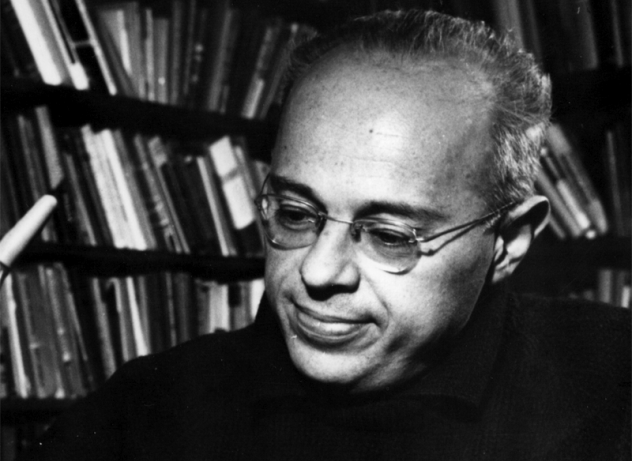
Stanislaw Lem was a Polish writer working during the Cold War. He is best known in the West for his 1961 novel Solaris, which was memorably adapted as a film by Andrei Tarkovsky. His first book, The Astronauts, however, was what made him famous. (Google celebrated the 60th anniversary of the work’s release with one of their “Doodles” in 2011.)
The Astronauts is a science-fiction novel, and it hinges on the 2003 discovery of a spaceship from Venus that was responsible for the 1908 Tunguska incident. The author, however, has disowned the book as communist propaganda trash.
His disgust for his own work stems from its naive and idealistic portrayal of communism. The futuristic setting of the early 2000s finds communism triumphant around the globe. Young scientists and adventurers, free from the oppression of capitalism, are able to undertake huge feats of engineering and scientific achievement. Once the protagonists discover the alien spacecraft from Venus, they endeavor to go on a mission to the planet, all made possible by the glories of communism.
5 George R.R. Martin Admits To Getting A Lot Wrong
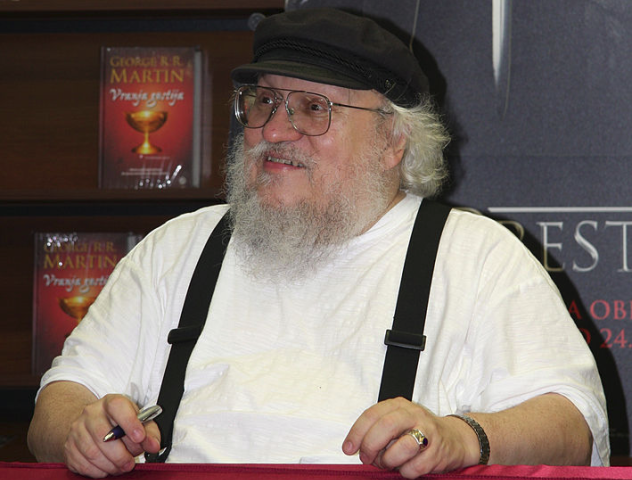
Bringing the Game of Thrones books to life with the series and various video games made George R.R. Martin realize that he has no clue how to scale structures properly. The Wall, home to the Night’s Watch, is 210 meters (700 ft) tall and protects the realm against spooky skeletons in the night. To give you a frame of reference, the Seattle Space Needle is only about 180 meters (600 ft) tall. When Martin saw the Wall drawn out he exclaimed, “I wrote it too big!”
Martin also regrets how he initially wrote Tyrion. When we are first introduced to Tyrion, he’s tumbling and backflipping around in the Winterfell courtyard. Tyrion was originally intended to be an aspiring acrobat. For those who haven’t read the books or forgot, here is how we meet him:
He pushed himself off the ledge into empty air. Jon gasped, then watched with awe as Tyrion Lannister spun around in a tight ball, landed lightly on his hands, then vaulted backward onto his legs.
As Martin told Adria’s News, this cringeworthy scene was a by-product of having had “very few references” for people with dwarfism.
Perhaps the biggest change we’ll see, though, is a direct by-product of the show. Martin is not a postmodern writer, but he is perhaps facing the most ironic postmodern problem of any writer’s career: The show will finish the story before the novels do. He’s tried not to let the show influence the direction of his books, but he has admitted that the show has gotten one character completely right and much better than his own. That character is Osha, the crazy wildling in charge of Bran and Rickon. In the books, she’s a one-dimensional throwaway character who exists to further the plot, but in the show, she’s a complex woman with agency. Martin has said that the show portrayal of Osha has caused him to alter and grow the character in the books. In other words, the show got it right, and he didn’t.
But things could be worse. His regrets could be much greater if we got the original version of the story—the version where Jon and Arya fall in love and are tormented by their incestuous passion.
4 Gogol’s Fiery Hatred
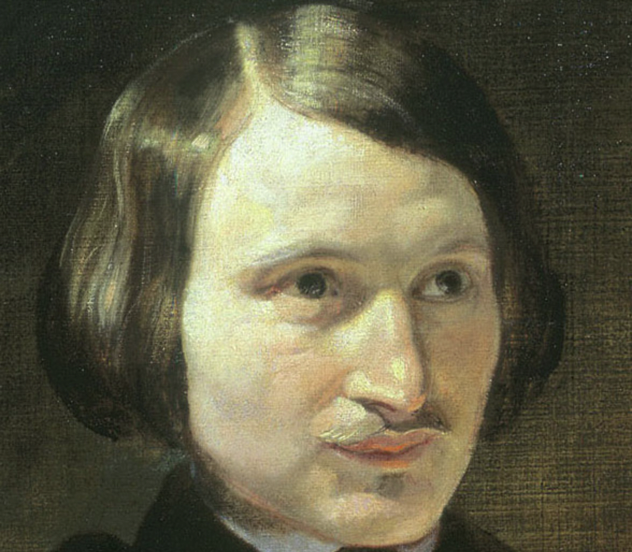
Nikolai Gogol was a famous Ukrainian-Russian writer from the 19th century who ended up with a burning hatred for his most important work. He began his career as a short-story writer and dramatist before embarking on his magnum opus, the satirical epic Dead Souls. The novel follows Pavel Ivanovich Chichikov, a middle-class gentleman, as he searches around a small town on a quest to collect the eponymous dead souls. Only the first part of the book survives, and it actually ends in mid-sentence.
The reason that the second half of the novel does not exist has to do with Gogol and religious mysticism. Gogol, during the later years of his life, fell under the persuasion of a strange Orthodox priest. Under the priest’s advice, Gogol burned the second half of his life’s work because the story was heretical. After that, he undertook a fast to purify his soul for the sins he’d committed with the pen, which killed him.
3 Harold Bloom’s Self-Conscious Anxiety

Harold Bloom is as big of a celebrity as a literary critic can get. He’s written numerous books and taught literature at Yale since 1955. (He even taught literature simultaneously at New York University from 1988–2004.) He has been an important scholar and critic for most of his life, but he is perhaps most famous for his savage tongue on poor writing. His criticism is so sharp that not even his own fiction escapes its wrath.
On top of his scholarly work, Bloom has also written exactly one novel during his career. It is The Flight to Lucifer, and it is a sequel to David Lindsey’s 1920 fantasy/sci-fi novel A Voyage to Arcturus. Bloom, however, hates the book. He dismisses it as a complete failure, and he is incredibly harsh on himself. The book, according to Bloom, has no redeeming qualities and is atrociously bad, and he wishes he had never written it in the first place. It is strange, because the novel received very favorable reviews and made him a name in literature as well as criticism. Nevertheless, the novel makes him cringe, and he wishes it was out of print.
2 Octavia Butler Is Not A Star Trek Fan
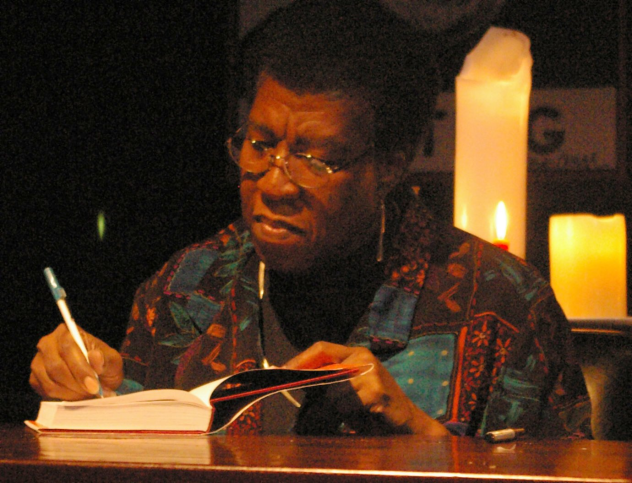
Octavia Butler was a prolific science-fiction writer, and she was one of the most accomplished writers to ever work in the genre. She was the first sci-fi author to be awarded a MacArthur Fellowship (better known as a “genius grant”), and she was a repeat winner of both the prestigious Hugo and Nebula Awards. She was a black woman working in a white male–dominated field, and her work wrangled with tough, complex, and bleak stories that were more often about us than a fictional world. One of her books was an exception, however.
Survivor was the third book in her Patternist series, and it is the only work which she has written that has fallen out of print. In fact, it fell out of print just four years after it had been published. This was due in large part to Butler’s extreme dislike of the book. The main reason is that she found it cliche-ridden and felt that she should not have followed the typical conventions where humans go to another planet, exploit the natives, and have sex with them. She referred to the book as her Star Trek novel, presumably implying that she thought the show was cliche and derivative drivel.
1 J.K. Rowling Loves To Retcon
Harry Potter is the most beloved children’s series of all time. Roughly every millennial has read the series (or at least seen the movies), and most people of a certain age can talk for hours about their favorite aspect of the wizarding world. Rowling, however, can’t quite seem to let the story rest, and she continually goes on record to clarify or outright change aspects of the Harry Potter universe. The most controversial thing that she’s done has nothing to do with Dumbledore’s sexuality.
J.K. Rowling has gone on to say that she screwed up a major plot point: Ron and Hermione should have never ended up together. She’s gone back and revised and added parts here and there, but this is by far the biggest “mistake” that she admits to. Fans are baffled because they love the couple and disagree with Rowling’s wish to have made Harry and Hermione fall in love.
+ Palahniuk Goes To The Movies
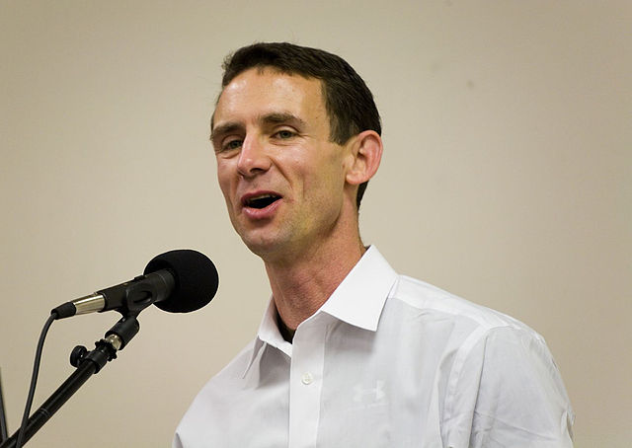
Beloved author Chuck Palahniuk is currently in the process of releasing a monthly miniseries that is a sequel to his cult-classic novel Fight Club. You may remember the movie version directed by David Fincher a little better. Don’t feel bad that the movie made a bigger impression on you than the book did; it had the same effect on the author.
Palahniuk has stated that the movie version of his book is better, and he specifically greatly prefers the film’s ending. The book ends with a much darker tone, while the film has a very romantic and ironically optimistic feel.
Palahniuk stated in an interview that Fincher streamlines the plot and was able to make and see connections that Palahniuk missed. The author specifically singles out Tyler Durden’s line, “Father’s setting up franchise with other families,” as being particularly salient. It’s a bit of meta-dialogue that acts as a commentary on the book being franchised out as a brand.
I’m a graduate student and a freelance writer. You can check out my other work here at Listverse or read my articles for Cracked.com.








